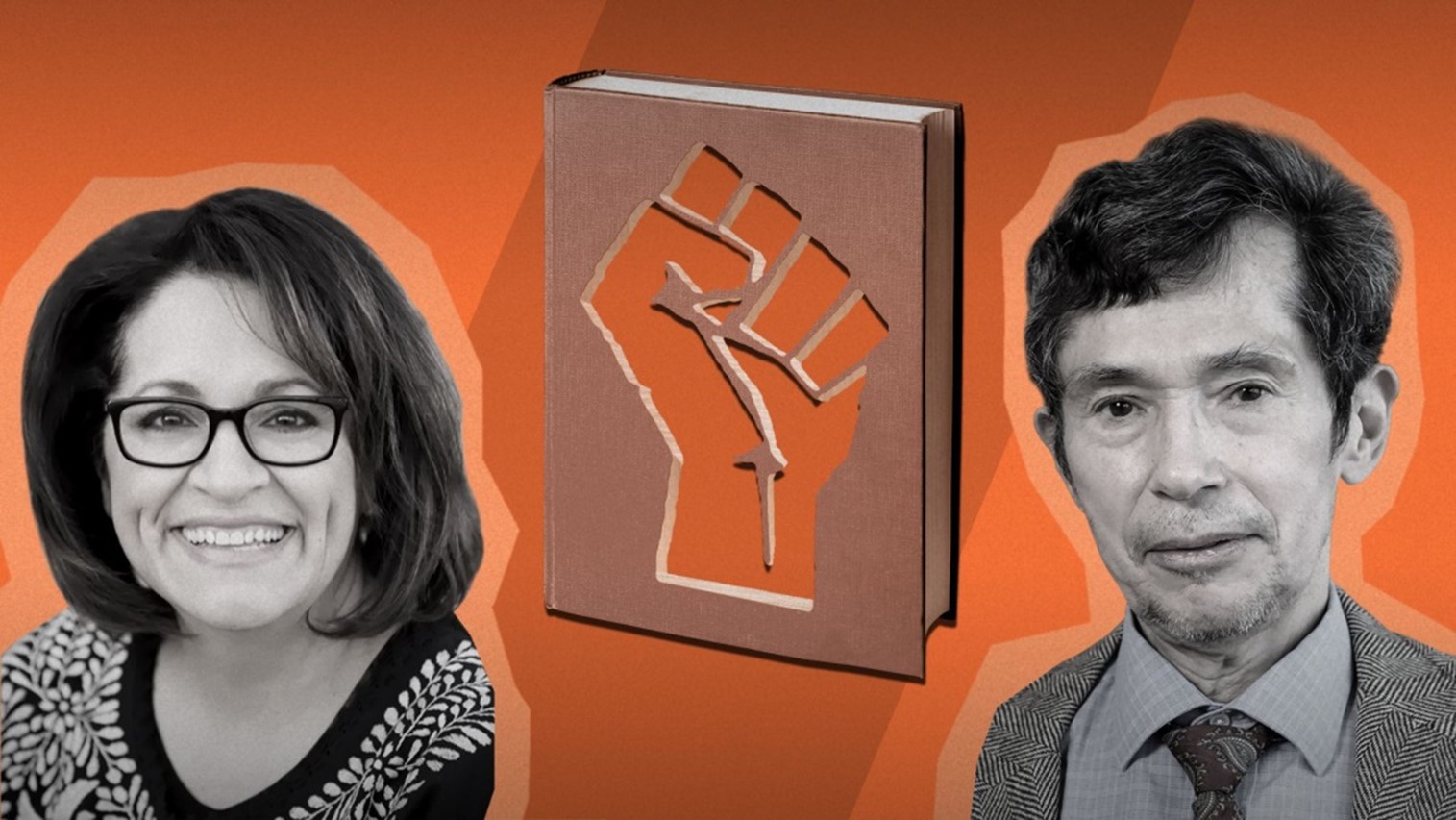LatCrits: How Latinos shaped Critical Race Theory
Critical race theory is an academic framework that examines systemic racism in the U.S. legal system. Richard Delgado, the son of a Mexican immigrant, helped develop the framework five decades ago.

Photo illustration: Megan Robinson/Axios. Photos: Courtesy of Richard Delgado and Margaret Montoya.
Why it matters: CRT is under attack by some conservatives who falsely claim the graduate school-level concepts are being taught in elementary and high schools. But not only is CRT routinely misunderstood, the Latino contributions to the field also are overlooked.
Basic tenets of CRT: Critical race theory scholars generally subscribe to a basic system of beliefs, according to "Critical Race Theory: An Introduction" by Delgado and Jean Stefancic.
- First, racism is ordinary. It's the usual way society does business and the everyday experience of most people of color in the U.S.
- Racism advances the material interests of white elites and psychological comfort to working-class whites so large segments of society have little incentive to eradicate it.
- Race is a product of social thought and relations. Even though there is no biological or genetic reality, races are categories that society invents, manipulates, or retires when convenient.
- People of color, because of their different histories and experiences with oppression, can communicate to their white counterparts matters that the whites are unlikely to know.
Details: In the 1970s, former NAACP lawyer Derrick Bell wrote pieces that argued racial progress in the U.S. only came about when it aligned with white interests.
- He concluded window-dressing diversity initiatives masked underlying inequality. His ideas would later be called critical race theory.
- Bell would then be joined by other Black legal scholars, Delgado and other Latino legal thinkers who critiqued the shortfalls of the legal system, liberalism and the civil rights movement in addressing racism inequality.
- Delgado, now 82, is a University of Alabama law professor and considered one of the founders of critical race theory. Bell died in 2011.
The intrigue: The early Latino scholars of critical race theory started their undergraduate and graduate school studies when almost no Chicano Studies material existed, Harvard-trained Mexican American legal scholar Margaret Montoya told Axios.
- "We drew upon both the African liberation movements and Black liberation authors. So we were reading Frantz Fanon, Albert Memmi, (W.E.B.) Dubois, Malcolm X, and Martin Luther King, Jr."
- Latino critical race scholars, or LatCrits as they would be later called, turned to personal stories to point out systemic racism in the legal system, said Montoya, now a University of New Mexico law professor.
- Montoya, a descendant of early Spanish settlers in New Mexico, used personal narrative in her 1995 groundbreaking Latina feminist CRT article, "Mascaras, Trenzas, y Greñas: Un/Masking the Self While Un/Braiding Latina Stories and Legal Discourse."
Between the lines: Delgado and other LatCrits felt critical race studies in the U.S. should go beyond the experiences of white and Black people.
- They pointed to the history of legal segregation of Latinos and the systemic racism Asian Americans and Native Americans also faced throughout American history.
Yes, but: Bell and some Black CRT scholars rejected those arguments and wanted critical race theory to focus on the experience of Black Americans who were descendants of enslaved people.
- "Bell always stuck to the position that the main thrust of civil rights scholarship and activism ought to be Blacks in improving their conditions," Delgado told Axios. That limited focus didn't fully tell the story of racism in the U.S., Delgado said
Reality check: Mexican Americans in the American Southwest were lynched at the same rate as Black Americans at times, even though the Mexican American population was much smaller, Delgado wrote in a 2009 essay.
Flashback: In 1995, Cuban American legal scholar Francisco Valdes convened a meeting of LatCrits in Puerto Rico to discuss ideas about critical race theory and U.S. Latinos, Montoya said.
- The group has been meeting ever since and just celebrated their 25th gathering.
The book:
https://olivettheory.files.wordpress.com/2020/12/fdbc8-delgadocriticalracetheory.pdf









